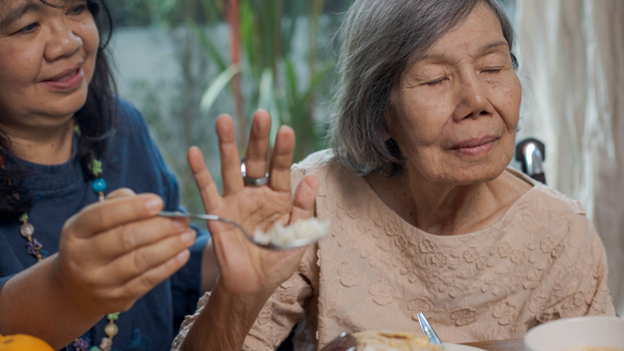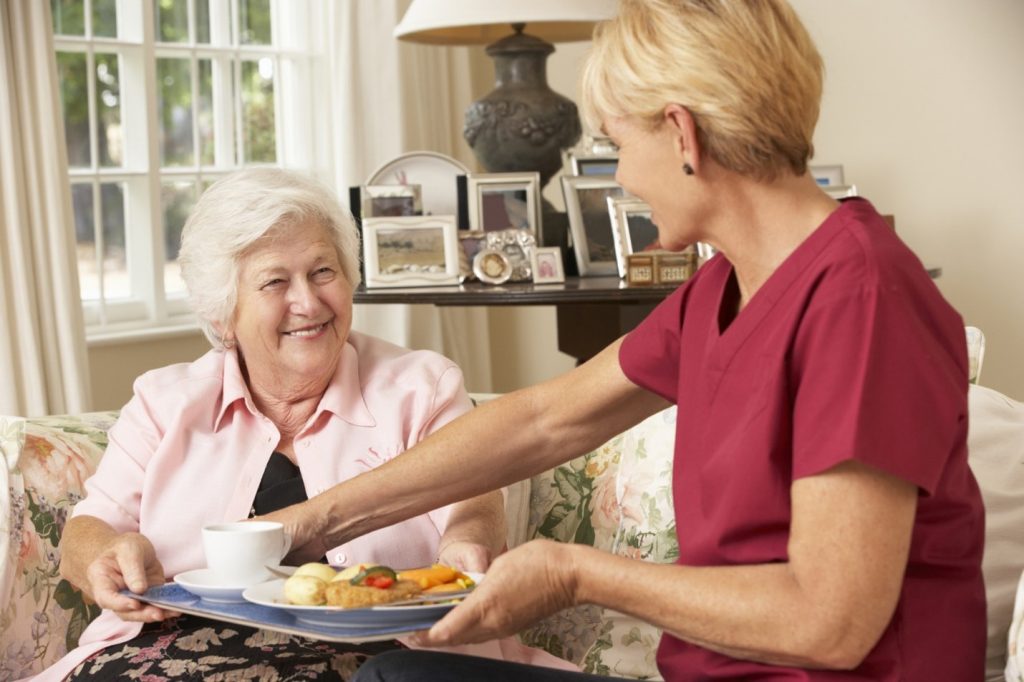As our loved ones age, it’s not uncommon for their appetites to change. For some, this may mean eating a little less than they used to. For others, it may mean losing their appetite entirely. If your elderly parents are starting to lose their appetite, there are a few things you can do to help them regain it.

First, try to identify the underlying cause of their loss of appetite. There are many potential causes, including medications, dental problems, and depression. Once you know the cause, you can work on addressing it. For example, if your parent is taking medication that is causing them to lose their appetite, talk to their doctor about changing the dosage or switching to a different medication. If they have dental problems, make sure they’re seeing a dentist regularly and that their teeth are being properly cared for. And if you think depression may be the cause, talk to their doctor about getting them started on antidepressant medication.
In addition to addressing the underlying cause of their loss of appetite, there are also a few things you can do to help them eat more. Smaller meals more often may be easier for them to digest than three large meals a day. You can also try adding nutritious smoothies or shakes to their diet if they’re having trouble chewing or swallowing solid food. Making sure they’re drinking plenty of fluids throughout the day can also help, as dehydration can also lead to a loss of appetite. Here are some more specific tips and strategies you can use to get your loved one eating again.
1. Treat side effects of medications
For some seniors, taking medications can have a number of unforeseen side-effects. One of the more common side-effects associated with certain essential medications is dry mouth, which can make eating and swallowing an uncomfortable experience since it affects the salivary glands’ ability to produce saliva or moisture. Fortunately, there are several methods that can help mitigate this problem such as chewing sugarless gum, brushing teeth often, or using an oral rinse before meals–so that seniors maintain good nutrition and taste sensation amid their medication regimen. If your loved one works with a senior home care provider, make sure that person knows to help your senior with these steps daily to help them regain their appetite.

2. Focus on nutrient-dense food
Serving large portions of food can be intimidating for seniors with low appetites, and research shows that this approach does not encourage them to eat more. Instead, caregivers can focus on providing specific foods, such as enriched breads, yogurts, and eggs, that are nutrient-dense and rich in calories. Nutrition experts support this approach in order to ensure that seniors get the necessary amount of nutrients even if they do not consume large amounts of food. It is important in elder care to choose the right kinds of foods carefully so that seniors get a balanced diet and all the essential vitamins and minerals needed for healthy aging.

3. Try an appetite stimulant
It can be difficult to watch a loved one struggle with maintaining their weight due to lack of appetite. For some seniors, the answer may lie in a prescription appetite stimulant. However, before deciding if this type of medication is an appropriate solution, it is very important to consult with a physician. The doctor can assess the senior’s health condition and any other relevant medications, then discuss potential side effects and benefits. Appetite stimulants should always be taken under the supervision of a physician due to their potential for abuse and misuse. Be sure to take your loved one for a medical appointment if you think this might be an option for them.
4. Create a regular eating schedule
Having a mealtime routine for your elderly loved one is essential for their health and well-being. To get them into a routine, it’s important to start slow and begin with introducing a snack or two throughout the day and encourage them to drink fluids with their meals. Doing so can help to stimulate their appetite, encouraging them to eat further down the line during pre-arranged times throughout the day.

5. Use seasonings and spices to add flavor
For seniors, eating can often become a mundane task – food is an essential part of life but does not always bring joy to their meals. Thankfully there are simple and effective ways to bring more flavor to their food and increase the enjoyment of the meal. Adding dried or fresh herbs or spices, is by far one of the easiest and most impactful ways to amplify taste sensations. However, care should be taken with introducing new flavors as they can be too potent or rich for some senior’s digestive systems. Therefore, it’s key to add small amounts and work up gradually until they have reached the desired taste or level of spiciness.
If your elderly parents are starting to lose their appetite, don’t panic – there are things you can do to help them regain it. First, try to identify the underlying cause of the problem and address it head-on. Then, make some adjustments to their diet and eating habits. With a little time and effort, you should be able to help your parent get their appetite back.
How Assisting Hands Can Help
Assisting Hands is an industry leader in companion care services that can help your loved one with a variety of needs, from having the comfort of a trusted friend to sustaining healthy eating habits. To get in touch with our team about senior home care services for the elderly person in your life, contact us today.
